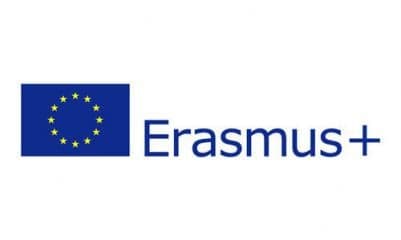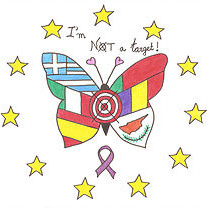School bullying is a real problem of the scholar environment, leading to a cascade of powerful negative effects both on individual and collective levels. School violence/aggression is a phenomenon which triggers the development of negative emotions, poor academic performance, failure, isolation, early school leaving and even suicide and murder. The European Strategy to Prevent and Tackle School Bullying has confirmed that the percent of children who are bullying is too high, in Romania 60% of the students, and in Greece 23.4% of the boys and 8.8% of the girls. In Romania this data was confirmed by a sociological report of ”Save the children” NGO in 2016. The need to handle bullying and cyberbullying in schools efficiently was also confirmed at our partnership level, when in the autumn of 2017 we conducted a survey among fifty student respondents in each partner school (results are available on eTwinning and www.cnlr.ro).
The project objectives
-
O1. Enhancing Socio-Emotional Competences of students and teachers for a better inclusion and tackling disadvantageous situations.
- 1.1. Developing the Socio-Emotional Competences for a min. 25% of the students.
- 1.2. Improving the capacity to apply acquired knowledge, skills and attitudes which are requested for building resilience, understanding and managing emotions, behaviours and relationships with others in at least 25% of the students.
- 1.3. Building capacities to experiment innovative, interactive and effective ways of teaching based on Emotional Intelligence and Socio-Emotional Learning, to create and use educational tools based on Emotional Development (min.36 teachers).
-
O2. Promoting a supportive organizational culture of the imperfect peace, kindness and carrying coexistence in diversity.
- 2.1. Fostering the sense of belonging to a collaborative community of diversity, inclusion and peace.
- 2.2. Enhancing the potential to build peace in an intercultural community in at least 25% of the students and 36 teachers.
- 2.3. Developing a min. 25% of the students’and 36 teachers’ capacity to deal with perspectives of conflicts and imperfect peaceful coexistence, in respect of positive transformation of reality into more peaceful, inclusive, integrative and caring conditions.
-
O3. Development of digital citizenship and social media safety.
- 3.1. Improving the abilities of min. 25% students and 36 teachers to detect and manage on-line aggressions;
- 3.2. Enhancing the abilities of min.25% students and 36 teachers to connect the damage,danger and risk with ICT usage, to protect digital identity and apply security measures for a safe/suitable use of digital resources;
- 3.3. Raising parents’ awareness about the dangers of the Digital Era
The project proposes common activities at each school level; 3 short-term training sessions for teachers and 3 short-term exchanges for students. The methodology is based on communication, cooperation and interaction, mixing emotional learning, games (including digital ones), active- participative workshops, intercultural events, TED conference format, case studies and investigations and using IT tools. The activities are focused on cooperation, collaboration, working in intercultural teams, active and participative strategies in order to involve students, teachers, school staff, but also parents and other stakeholders.
Results
- min.36 teachers will be trained and 750 students involved in common educational activities (77 vulnerable and 62 in mobility) increasing digital citizenship and level of competences as: socio-emotional, intercultural and interpersonal communication, cyberbullying management, e-safety and security, using IT, and English language;
- 6 organisational culture increased in the sense of safety, peace and inter-institutional relations;
- 1 network;
- 1 project webpage;
- 1 eTwinning project;
- 1 Facebook page;
- 1 Journal;
- 1 Flash-Book as good practices collection;
- 1 handbook of Coexistence in peace;
- 1 curricular proposal-training course for teachers;
- 6 e-Safety certificates;
- 6 intercultural events;
- 6 programs for scholar bullying preventing and early-intervention;
- 6 e-lessons;
- 6 e-games;
- 6 digital stories;
- 6 national petitions on digital future;
- 60 Flash-Signs and stickers;
- minimum 6 digital stories;
- 1 article,18 intermediate and 3 final reports.
Impact
Improving teaching and planning teaching based on socio-emotional learning and management of bullying situations in schools; increasing the level of using digital tools and educational platforms; increasing the quality of educational act and services; improving the relationship between teacher and students; creating a safe learning environment in classrooms/schools; changing the organisational culture in respect of inclusion and coexistence in an imperfect peace; decreasing the level of bullying/cyberbullying in school environment, school failure, abandon and discrimination acts, antisocial behaviour and even suicide.

